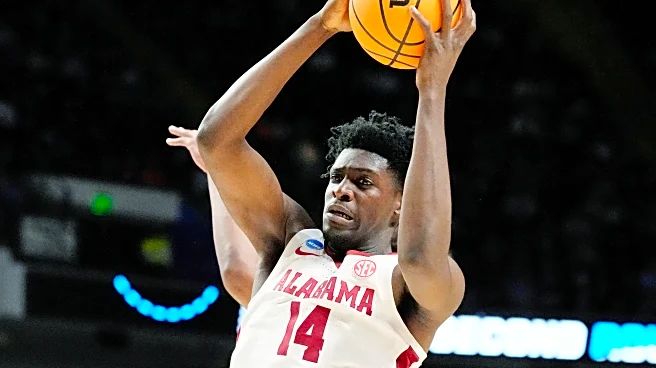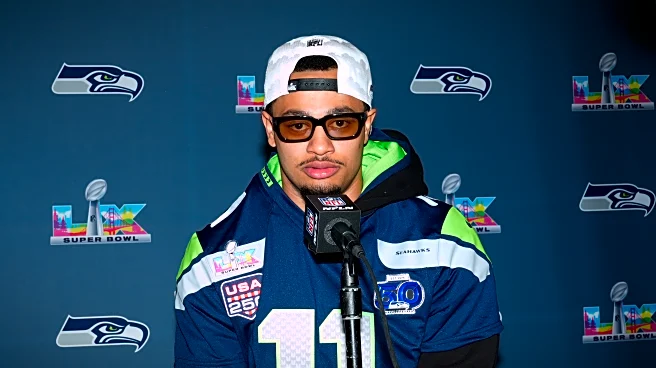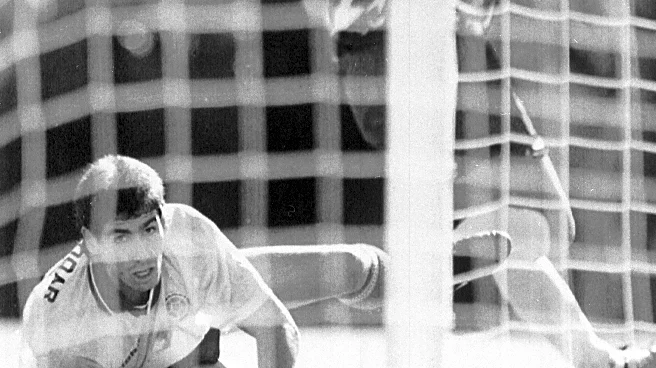What is the story about?
What's Happening?
The Milwaukee Brewers are contemplating the future of their star pitcher, Freddy Peralta, as he emerges as a top trade candidate this offseason. Peralta, who delivered an impressive performance with a 2.70 ERA and 204 strikeouts over 176.2 innings, is currently on a team-friendly contract that extends through the 2026 season. The Brewers have a history of trading away key players as they approach free agency, and Peralta's situation is no exception. A recent Bleacher Report article lists him as the second-best potential trade piece, highlighting the strategic decision the Brewers face regarding his long-term extension.
Why It's Important?
The potential trade of Freddy Peralta could significantly impact the Brewers' roster and their competitive standing in Major League Baseball. Peralta's performance has been a cornerstone for the team, and trading him could alter their pitching dynamics. This decision also reflects broader trends in MLB where teams often trade valuable players to avoid losing them to free agency without compensation. The Brewers' choice will influence their future strategy and could set a precedent for how they manage player contracts and team composition.
What's Next?
If the Brewers decide to trade Freddy Peralta, it could trigger a series of moves in the MLB offseason, affecting team strategies and player market dynamics. Other teams may express interest in acquiring Peralta, given his proven track record and favorable contract terms. The Brewers will need to weigh the benefits of retaining a top pitcher against the potential gains from a trade. This decision will likely involve negotiations and assessments of the team's long-term goals and financial considerations.
Beyond the Headlines
The decision to trade Freddy Peralta also raises questions about the Brewers' approach to player development and retention. It highlights the challenges teams face in balancing financial constraints with competitive aspirations. The move could influence how other teams handle similar situations, potentially leading to shifts in contract negotiations and player management strategies across the league.

















